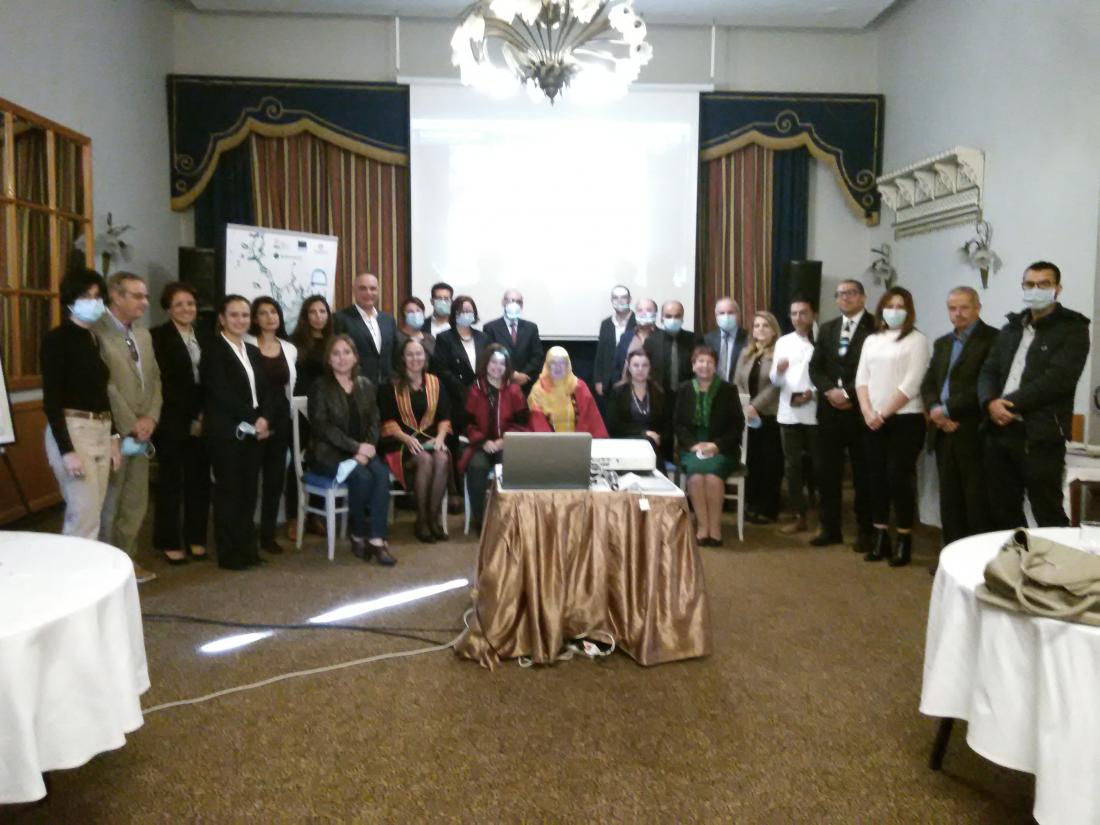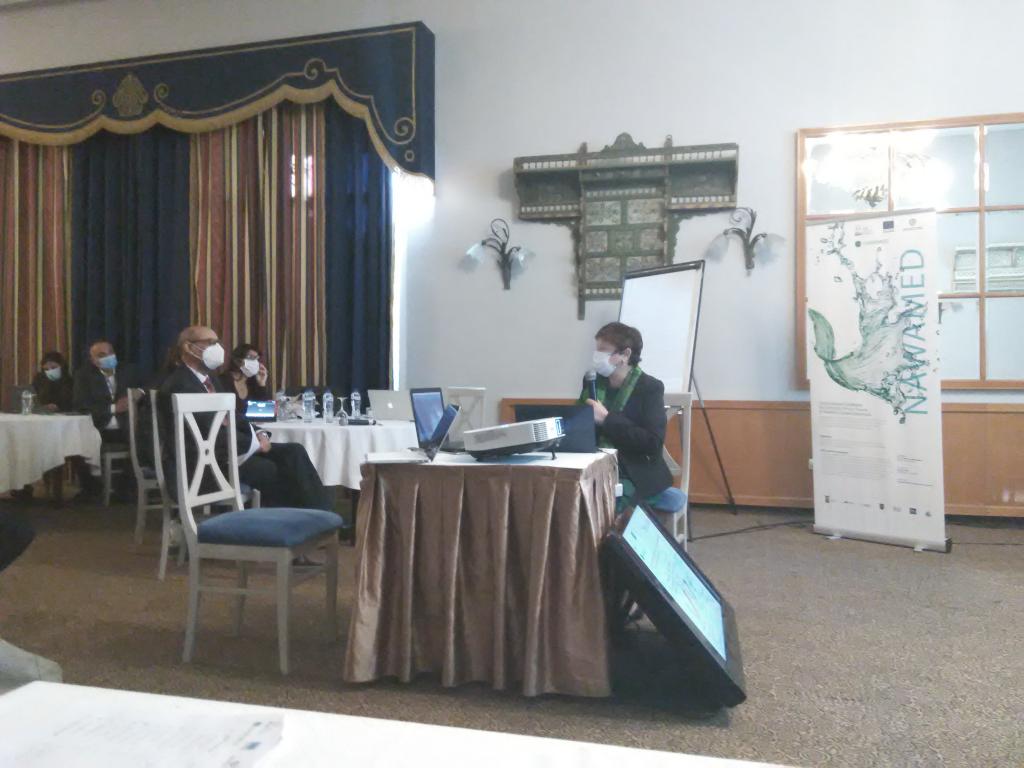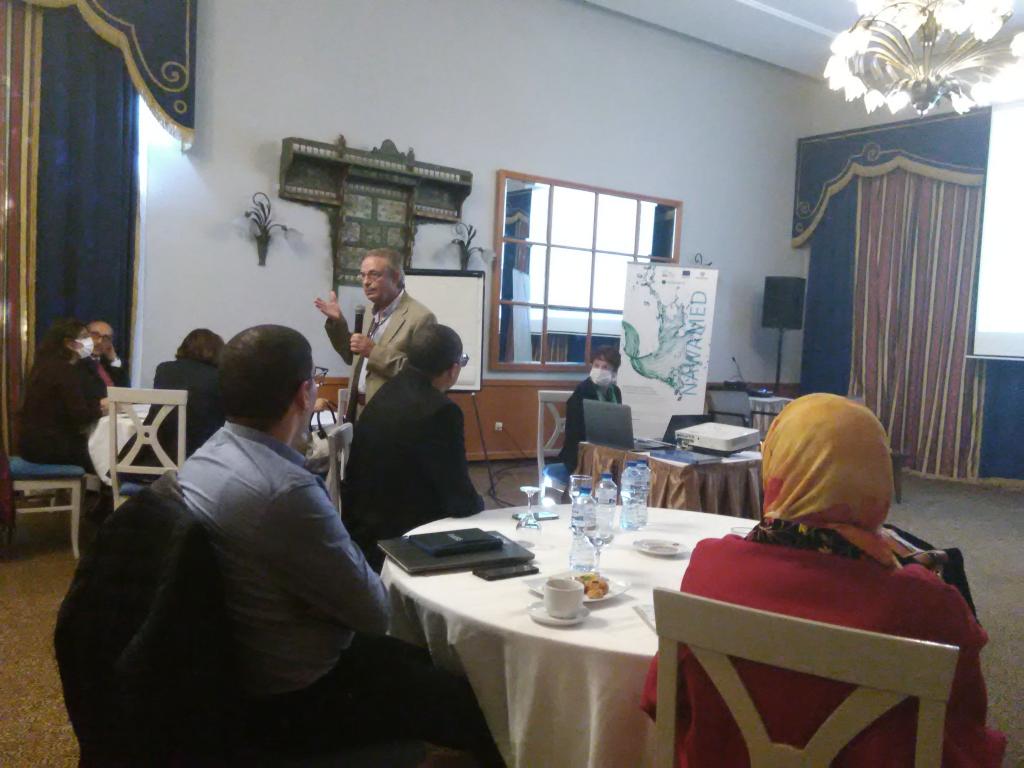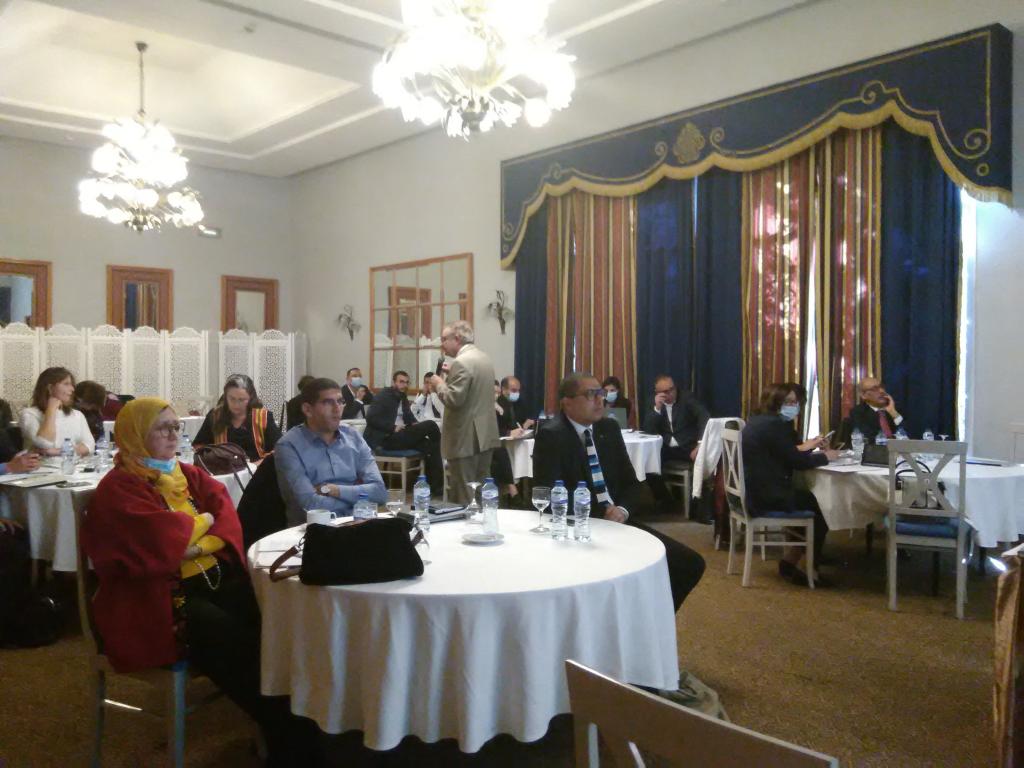NAWAMED: Let's discuss the financial feasibility of non-conventional water solutions in Tunisia!

The third water table, NAWAMED dialogue platform, was organized for the first time in person by the Centre de Recherches et Technologies des Eaux, CERTE. It was organized on November 23, 2021 to address the financial feasibility of non-conventional water treatment and reuse solutions in urban areas. A total of 32 experts from the private and public spheres involved in water resources participated. They are representatives of local authorities, private companies, public institutions and agencies, private engineering firms and architectural firms.

The main objective was to analyse the financial feasibility of Non-Conventional Water (NCW) projects based on real case study data and cost-benefit assessment. CERTE and IRIDRA shared their experiences with nature-based solutions and national experts presented existing funding programs and how to undertake a cost-benefit assessment of NCW projects, taking due account of the relevant guidelines.

The participants of the third water table underlined the lack of information about the various opportunities and findings programmes to finance the investment related to the NCW projects. In addition, Tunisian national stakeholders expressed the need to further strengthen their capacity in cost-benefit analysis, as it is becoming a political process/requirement that project owners must undertake at some point or at the very beginning. The attendees mentioned also that the economic assessment of the environmental impacts is one of the most controversial and heavily debated phases in the environmental cost-benefits analysis due to the deficiencies in the conventional valuation techniques. Participants also mentioned that the economic assessment of environmental impact in relation to the evaluation of NCW is emerging as one of the most controversial and heavily debated phases of cost-benefit analysis due to the deficiencies and limitations of conventional valuation techniques. Finally, according to the participants, it would be necessary to publish and communicate about the financial feasibility of the NCW valorisation projects implemented in Tunisia and especially those using emerging or nature-based technologies (NBS) for a better development and adaptation.

These conclusions are key inputs for the development of the capitalization activities of the NAWAMED project in order to improve the capacity building and foster the use of NCW resources, thanks also to tailored workshops for technicians and politicians, to be developed during the next months.









